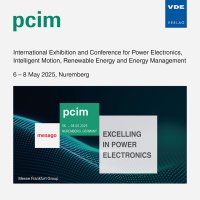A Hybrid Approach for the Data Center Power Efficiency and Reliability Improvement
Konferenz: PCIM Conference 2025 - International Exhibition and Conference for Power Electronics, Intelligent Motion, Renewable Energy and Energy Management
06.05.2025-08.05.2025 in Nürnberg, Germany
doi:10.30420/566541364
Tagungsband: PCIM Conference 2025
Seiten: 8Sprache: EnglischTyp: PDF
Autoren:
Kaluarachchi, Amal; Prof. Warnakulasuriya, Kapila; Prof. Hughes, David; Gurwicz, David
Inhalt:
The proliferation of information technology (IT) applications has driven the exponential growth of Data Centers (DCs) worldwide. Currently, DCs consume approximately 2% of global electricity, a figure expected to double by 2026 due to the increasing demand for Artificial Intelligence (AI) driven workloads. This soaring energy consumption is creating a critical power shortage while also exacerbating environmental concerns associated with energy production. Although renewable energy adoption and own power generation are widely pursued solutions, enhancing energy efficiency and system reliability remains imperative for sustaining long-term DC operations. Efficiency improvements are not only essential for reducing operational costs but also crucial for mitigating carbon footprints, aligning with global sustainability goals. This paper proposes a high-efficiency hybrid rectification system integrating a 24-pulse transformer assembly with a buck-boost converter (BBC) to enhance power conversion efficiency. By shifting the power distribution model from the traditional 230V AC or 48V DC to a higher-efficiency 380V DC architecture, this approach significantly reduces conversion losses, minimizes power distribution complexities, and enhances overall system reliability. Simulation results indicate an efficiency improvement of 1.5% to 2.0% under partial load conditions, a common operating scenario in DCs. The proposed system reduces thermal stress on power components, enhances electromagnetic interference (EMI) performance, and simplifies battery integration, resulting in better operational resiliency, sustainability, and cost performance. The findings presented in this study highlight the importance of rethinking DC power architectures to ensure energy-efficient, cost-effective, and reliable infrastructure while meeting the escalating computational demands of modern applications.


